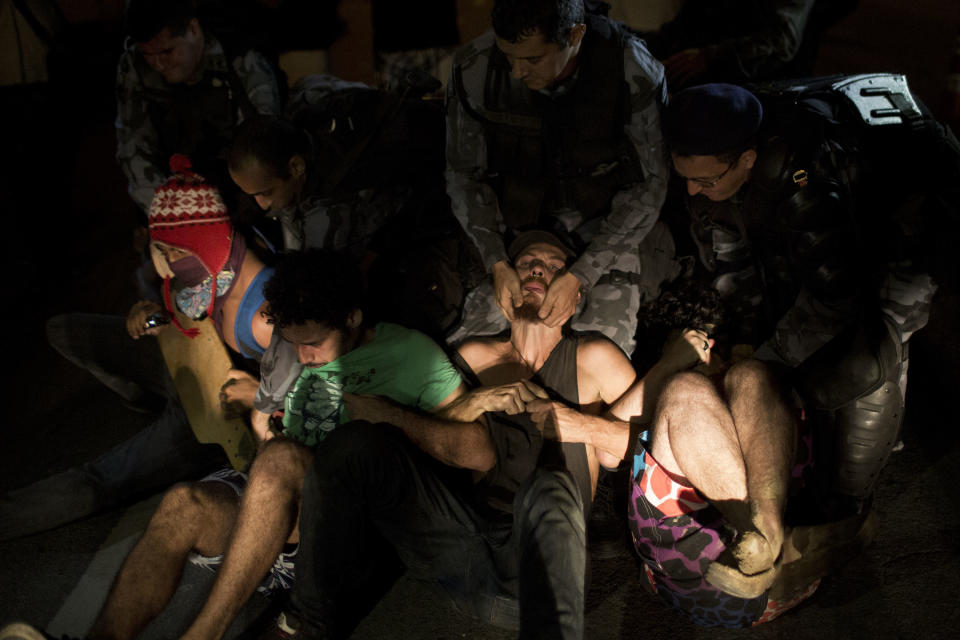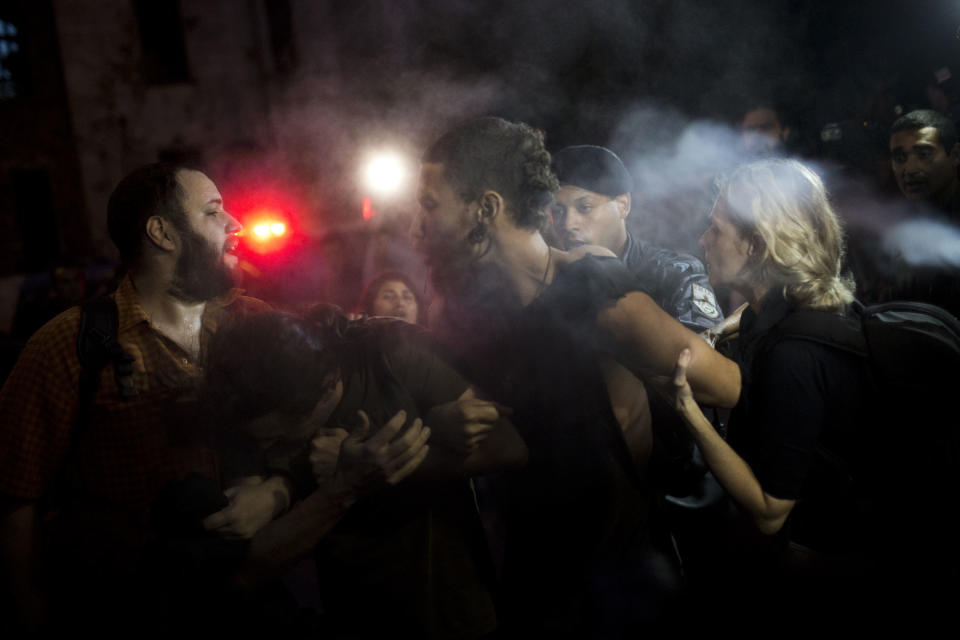Indians, police clash at Rio Indian museum
RIO DE JANEIRO (AP) — Brazilian police on Friday surrounded an old Indian museum complex next to Rio de Janeiro's legendary Maracana football stadium in a bid to expel a group of indigenous people and their supporters to make way for works related to the World Cup.
Several Indians armed with bows and arrows were posted on the roof of the large stone structure. Riot police clashed with supporters of several dozen Indians from throughout Brazil, some of whom have been squatting in the crumbling complex for years.
The museum has been at the center of a drawn-out legal battle the squatters and state and local authorities, who want to raze the complex as part of renovations ahead of the 2014 World Cup.
The indigenous group includes men and women of about 10 ethnicities — mostly Guarani, Pataxo, Kaingangue and Guajajara — who have been living for years in 10 homes they built on the site of an old Indian museum abandoned since 1977.
Gabriel Guajaja, a 23-year-old law student wearing an Anonymous mask and brandishing a Brazilian flag, said he turned out to support the Indians holed up in the museum.
"It's been 500 years that white men have been exploiting the indigenous people of this continent," said Guajaja. "The local government wants to destroy even this little bit of Indian culture we have here in the city. It's disgraceful."
Police used tear gas and some came to blows with the Indians' supporters in an early-morning street scuffle. Two helicopters hovered overhead.
By midmorning, dozens of Indians and their supporters were still holed up in the complex, chanting and brandishing homemade signs, one of which read "Maracana Village resists."
Inside the complex, Indians in face paint and feather headdresses negotiated with police and local government officials as others beat out a rhythm on pans.
At one point, the Indians held an infant above the wall of the complex to show negotiators the baby was holed up there. A woman held a homemade sign reading "they won't pass."
A few hours after police arrived, about 10 people left the museum complex, climbing down the exterior wall over a ladder.
Carrying bags of belongings, they said they were going to live in a shelter and that they would inspect alternative lodgings proposed by City Hall.
Meanwhile, the ranks of protesters gathered along with the news media in a median strip in front of the complex continued to swell. The protesters chanted "fascists" and anti-police jingles.




